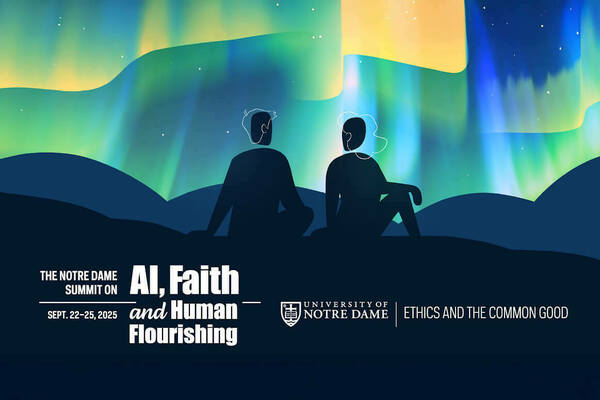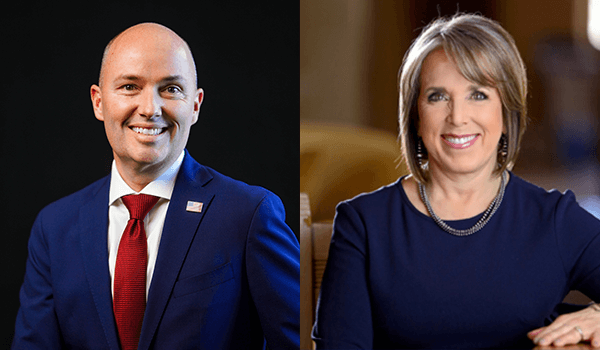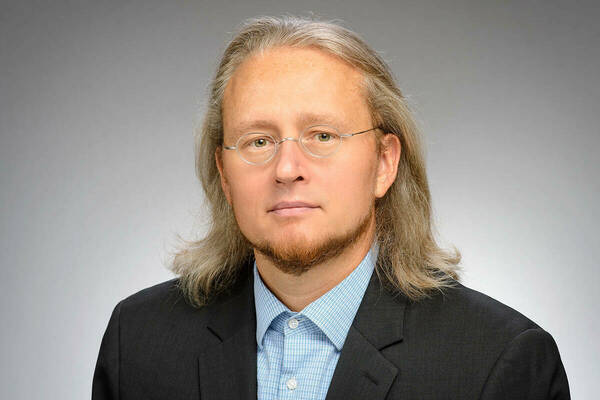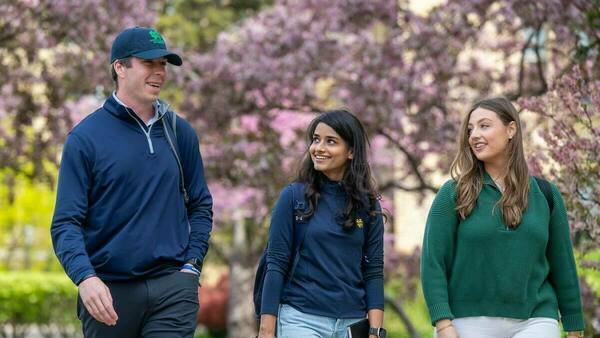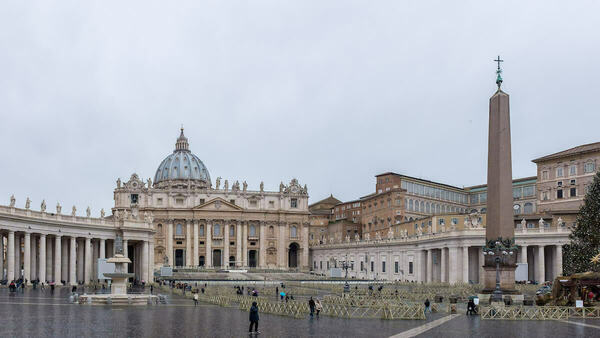Justice Amy Coney Barrett to deliver Center for Citizenship and Constitutional Government lecture

Amy Coney Barrett, associate justice of the Supreme Court of the United States, will speak at the University of Notre Dame at 4 p.m. Sept. 12 in the Leighton Concert Hall of the DeBartolo Performing Arts Center.
Barrett will engage in a moderated conversation with Vincent Phillip Muñoz, director of Notre Dame’s Center for Citizenship and Constitutional Government, on themes related to her soon-to-be-published book, “Listening to the Law.” Barrett will also answer questions submitted by the audience. The event is sponsored by the Center for Citizenship and Constitutional Government and will serve as the center’s 2025 Jeanie Poole O’Shaughnessy Memorial Lecture. It will also serve as the University’s Constitution Day event.
About Barrett’s campus visit, Muñoz said, “There may be no better way to teach students about the American Constitution than to have them engage directly with a sitting Supreme Court justice. And introducing Notre Dame students to leading Catholic public figures such as Justice Barrett is an important aspect of what we do at the Center for Citizenship and Constitutional Government. We are honored to host and are looking forward to hearing about her experiences on the court.”
In addition to her public lecture, Barrett will participate in a seminar with the center’s undergraduate Tocqueville Fellows. The seminar will allow students to ask the justice questions and engage with her in a small-group setting.
Lilian Jochmann, a senior student in the Tocqueville Fellowship Program, said, “Tocqueville Fellows receive the unique opportunity to directly interact with and receive mentorship from the center’s guests. Each speaker visit is a chance for us to soak in the wisdom of some of our nation’s most learned scholars and politicians, and to be inspired by their stories and career paths.
“Justice Barrett, a deep and thoughtful jurist, has demonstrated a consistent deference and loyalty to the original understanding of the Constitution. Her commitment to civility and virtue through disagreement, rulings that transcend the simple silos of left/right ideology, and emphasis on the proper role of the judiciary are an inspiration for students like me who aspire to do good through law. I’m incredibly grateful to the center for the opportunity to learn from Justice Barrett in what promises to be one of the most formative experiences of my time at Notre Dame.”
A limited number of tickets will be available to Notre Dame students, faculty and staff with a valid Notre Dame ID at the DeBartolo Performing Arts Center beginning at 2 p.m. Sept. 12. The talk will be livestreamed on the Center for Citizenship and Constitutional Government’s YouTube channel.
Barrett was appointed a judge of the United States Court of Appeals for the Seventh Circuit in 2017. President Donald J. Trump nominated her as an associate justice of the Supreme Court, and she took her seat on Oct. 27, 2020. On Sept. 9, 2025, her book, “Listening to the Law: Reflections on the Court and Constitution,” will be published by Sentinel.
Barrett was born in New Orleans on Jan. 28, 1972. She married Jesse M. Barrett in 1999, and they have seven children. She received a B.A. from Rhodes College in 1994 and a J.D. from Notre Dame Law School in 1997. She served as a law clerk for Judge Laurence H. Silberman of the U.S. Court of Appeals for the D.C. Circuit from 1997 to 1998, and for Justice Antonin Scalia of the Supreme Court of the United States during the 1998 term. After two years in private law practice in Washington, D.C., she became a law professor, joining the faculty of Notre Dame Law School in 2002.
Launched in 2021, the Center for Citizenship and Constitutional Government seeks to cultivate thoughtful and educated citizens by supporting scholarship and education concerning the ideas and institutions of constitutional government.
Contact: Tracy DeStazio, associate director of media relations, 574-631-9958 or tdestazi@nd.edu
Latest ND NewsWire
- Notre Dame to host summit on AI, faith and human flourishing, introducing new DELTA frameworkThe Institute for Ethics and the Common Good and the Notre Dame Ethics Initiative will host the Notre Dame Summit on AI, Faith and Human Flourishing on the University’s campus from Monday, Sept. 22 through Thursday, Sept. 25. This event will draw together a dynamic, ecumenical group of educators, faith leaders, technologists, journalists, policymakers and young people who believe in the enduring relevance of Christian ethical thought in a world of powerful AI.
- Notre Dame Democracy Initiative hosts bipartisan conversation with Western state governorsTwo Western state governors known to work across the aisle on policy issues such as water, housing and energy will visit the University of Notre Dame for a fireside chat about how Western state pragmatism can serve as a model for the country to overcome polarization.
- In new research, Roy Scranton explores climate change and the limits of human progressIn his most recent book, “Impasse: Climate Change and the Limits of Progress,” Scranton, an associate professor of English, defines the impasse he sees as “not only political and institutional, but cognitive, existential and narrative” and asserts that the only path forward is through embracing what he terms ethical pessimism. “A lot of people confuse pessimism with nihilism, apathy and despair,” Scranton said. “But pessimism is actually about recognizing our limits, letting go of unrealistic goals, finding solidarity in the fact of human suffering and doing what you can now, not in some utopian future.
- Notre Dame MBA launches deferred admission programThe Notre Dame MBA Deferred Admission Program allows candidates with little or no work experience, including college seniors, to secure admission before reaching the recommended three years of work experience to enroll.
- ‘Prebunking’ false election claims may boost trust in electionsIn recent years, democracies worldwide have seen a growing erosion of trust in election outcomes and institutions, driven in part by fears of widespread fraud. New Notre Dame research finds that “prebunking” — providing accurate information before false claims spread — boosts trust in elections more effectively than traditional fact-checking.
- ND experts on the canonization of Carlo AcutisAs the Church awaits the ceremony in St. Peter’s Square, where Pope Leo XIV will formally declare Acutis a saint, University of Notre Dame experts Kathleen Sprows Cummings, Brett Robinson and Timothy O’Malley reflect on his life and his path to sainthood.








